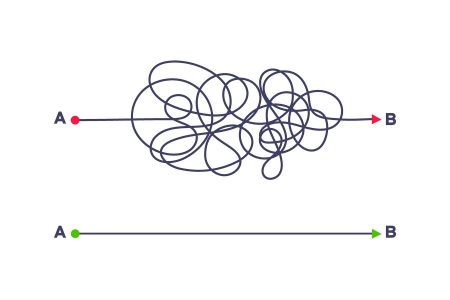The annual tax filing season presents a recurring challenge for millions of American taxpayers who, often unknowingly, leave billions of dollars in unclaimed tax credits and deductions on the table. This persistent “credits and deductions gap” underscores the difficulties individuals and families face in navigating the complexities of the US tax system. While the IRS has made efforts to simplify filing and educate taxpayers, a substantial disconnect remains between eligible benefits and those actually claimed. This lost financial assistance, particularly impactful for low- and moderate-income households, spans a range of programs, from the Earned Income Tax Credit (EITC) and Child Tax Credit (CTC) to various education-related credits. A recent IRS report provides a stark quantitative analysis of this issue, revealing the magnitude of the problem and highlighting the need for both individual action and systemic reforms.
The credits and deductions gap essentially represents the disparity between the tax benefits taxpayers are entitled to and those they actually receive. This discrepancy stems from a confluence of factors, including a lack of awareness regarding eligibility criteria, difficulties comprehending complex program requirements, and systemic barriers such as limited access to user-friendly filing tools and insufficient public guidance. Tax benefits come in various forms: deductions that reduce taxable income, non-refundable credits that offset tax liability up to the amount owed, and refundable credits that can result in a refund even if no taxes are due. Low- and moderate-income families often struggle with refundable credits like the EITC and CTC, while others, particularly non-filers, may be unaware of their eligibility, assuming that if they don’t owe taxes, there’s no need to file. The IRS report provides crucial data to quantify this gap, pinpointing the specific credits and deductions most frequently overlooked.
The IRS report, based on 2022 tax data, reveals significant gaps in the claiming of several key tax benefits. The EITC saw an estimated $864 million gap, affecting over 470,000 taxpayers, while the CTC had a $133 million gap impacting 110,000 taxpayers. Most striking, however, is the $6.3 billion gap in education credits—the American Opportunity Tax Credit and the Lifetime Learning Credit—affecting a staggering 6 million taxpayers. These figures underscore the urgent need for greater attention and outreach regarding education-related tax benefits. A primary contributor to these gaps appears to be the complexity of the tax filing process itself. Navigating the intricacies of tax forms and regulations can be overwhelming, especially for those with limited financial literacy or without access to professional tax assistance. This highlights the importance of initiatives like IRS Direct File, which aims to simplify and streamline the filing process.
The implications of these persistent gaps are far-reaching, affecting individuals, families, and the overall effectiveness of the tax system. For individual taxpayers, unclaimed EITC and CTC benefits can represent significant sums of money that could alleviate financial hardship, cover essential expenses, or contribute to long-term savings. From a systemic perspective, these gaps exacerbate existing inequities within the tax system, as those most in need of financial support often face the greatest obstacles in accessing it. When public assistance programs integrated into the tax code, designed to uplift vulnerable populations, are underutilized, their intended impact is significantly diminished, despite the political will and resources invested in their creation.
The unclaimed benefits also expose broader issues of accessibility and comprehension within the tax system. The complexity of tax regulations, coupled with limited access to clear and concise information, creates barriers for many taxpayers. Furthermore, the lack of widespread awareness regarding eligibility criteria and the benefits available further contributes to the problem. Addressing these challenges requires a multi-faceted approach, including increased investment in taxpayer education programs and simplification of the filing process. Initiatives that provide clear and accessible information, personalized guidance, and user-friendly filing tools are essential to empowering taxpayers to claim the benefits they deserve.
Ultimately, bridging the credits and deductions gap requires a collaborative effort involving policymakers, tax professionals, community organizations, and individuals themselves. By prioritizing taxpayer education, streamlining the filing process, and ensuring that information about available benefits reaches those who need it most, the US tax system can better serve its intended purpose of supporting individuals and families, particularly those facing financial hardship. Closing these gaps not only benefits individual taxpayers but also strengthens the overall effectiveness and fairness of the tax system, ensuring that public assistance programs achieve their intended impact and contribute to a more equitable society.










